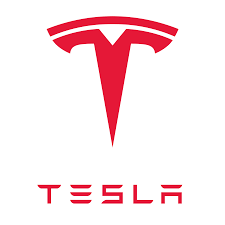$TSLA
#Tesla #EV #Supercharger #RenewableEnergy #ElectricVehicles #NordicCountries #GreenEnergy #Innovation #WinterTech #Norway #SustainableTechnology #TransportRevolution
Tesla, the electric vehicle pioneer led by Elon Musk, is adopting an innovative strategy to overcome challenges posed by the harsh Nordic winters. According to Max de Zegher, a senior Tesla executive, the company plans to use pre-assembled superchargers in countries like Norway to ensure deployment remains on track despite freezing temperatures. The move reflects Tesla’s commitment to maintaining its competitive edge in EV infrastructure while adapting to the climatic realities of challenging geographical regions. This operational shift is expected to simplify the installation process, reduce manpower demand, and ultimately accelerate the rollout of Tesla’s fast-charging network across these critical markets.
The Nordic countries are among Tesla’s most vital regions for business growth given their progressive adoption of electric vehicles and strong government incentives supporting green technology. Norway, in particular, serves as a significant contributor to Tesla’s revenue, due to its leadership in EV market penetration, with electric cars accounting for a striking percentage of new vehicle sales. By prioritizing pre-assembled superchargers, Tesla addresses critical logistical issues that might otherwise cause delays during the colder months, which is not only a technological problem but also a strategic business necessity aimed at cementing its position in the region’s rapidly evolving EV ecosystem.
From a financial perspective, deploying pre-assembled superchargers highlights Tesla’s focus on cost-efficiency and scalability. Pre-assembly speeds up integration, minimizing labor costs and complications tied to on-site assembly in difficult weather. The move could support Tesla’s gross margins, particularly as competition in the EV sector intensifies globally. As traditional automakers and newer EV players increase investments, Tesla’s focus on streamlining its charging infrastructure operations keeps its ecosystem attractive to customers. Additionally, staying competitive in regions like the Nordics, where consumer preference strongly leans towards sustainable solutions, could help sustain steady revenue growth for the company amid macroeconomic uncertainty.
On the broader market landscape, Tesla’s strategy signals a wider trend shaping the EV industry. The streamlined deployment of charging infrastructure aligns with global efforts to support accelerating EV adoption. It also raises questions for competitors like Volkswagen, Rivian, and legacy automakers, who are still scaling their own charging networks. Investors will likely view this innovation as a bullish sign for Tesla stock, considering how its operational efficiencies could enhance profitability in the long term. Analysts following Tesla stock could revise price targets upward if its infrastructure strategy proves successful, reinforcing the company’s leadership in both vehicle production and charging technology as the world transitions toward a greener future.











Comments are closed.